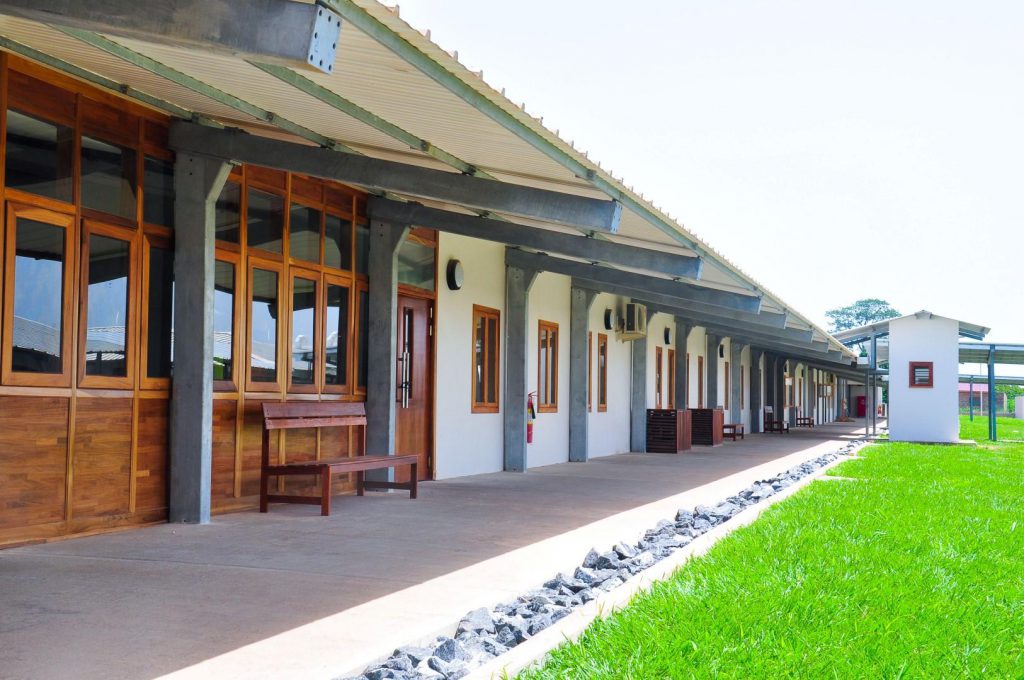SOD Hospital, possible benchmark for Africa
The World Health Organisation (WHO) has identified the Shai Osudoku District Hospital at Ayikuma as a possible benchmark for other health facilities in Africa in terms of infrastructure and service delivery.
The WHO Regional Director for Africa, Dr Matshidiso Moeti, said the hospital had set a standard that was worth emulating nationwide and in Africa, in so far as healthcare delivery outcomes were concerned.
She said tracing the evolution of the hospital from a health post decades ago to its current ultra-modern state, the facility’s operational strategy and successes were something she was going to learn more about in order to replicate the system not only in other health institutions in Ghana but also across Africa.
Dr Moeti made the observation following a tour of some health facilities in the district last Wednesday.
In her entourage were a Deputy Minister of Health, Ms Tina Mensah; the Deputy Director-General of the Ghana Health Service (GHS), Dr Gloria Quansah Asare, and other officials of the Ministry of Health (MoH) and the GHS.
Tour
The tour was organised on the back of a health summit organised by the MoH, in collaboration with the WHO, at which health experts in the country and the development partners took stock of performance in the country’s health sector.
Dr Moeti interacted with staff and management of the Shai Osudoku District Hospital and commended the medical director and his team for their teamwork and excellent performance which she observed during her visit to the facility.
She described the hospital’s working environment as positive, adding that such an environment was very good for the healing and well-being of patients.
“This facility is unique and is setting the standard for the region and I am so impressed about everything here,” she said.
She appealed to the management of the institution to share its expertise with other health facilities to ensure that the successes it had achieved, such as not recording any case of maternal mortality for five consecutive years, were experienced elsewhere.
Dr Moeti met with pregnant women who were attending a pregnancy class and joined them in singing, which was part of the routine during their antenatal visits.
She commended the women for taking the pregnancy-care classes very seriously and said the schooling was critical to a happy and safe delivery.
Commendation
Ms Mensah commended the Shai Osudoku District Hospital for its sterling performance.
She also commended the hospital for being innovative in setting up an in-house pharmaceutical manufacturing unit that produced basic drugs for the hospital and also implementing a good maintenance schedule that had kept the hospital in good shape in the two years it had been in existence.
She urged other health institutions to follow the example set by the hospital as a means to boost health care across the country.
Ms Mensah pledged the government’s continued support for the hospital and other health institutions and health workers in general, so that they could contribute positively to a vibrant health service in the country.
Maternal mortality
In a briefing, the Medical Director of the hospital, Dr Kennedy Brighton, informed the visiting team that the hospital had declared a zero tolerance for maternal deaths and that through the management’s commitment to the cause, there had been no maternal deaths in the past five years.
He said the hospital had achieved its successes through innovations such as having pregnancy classes, a field or home education drive and demystifying some widely held but false beliefs about caesarian operation.
The Greater Accra Regional Director of Health Services, Dr Charity Sarpong, said the hospital could boast having some of the best facilities and excellent service delivery practises among health institutions in the 16 health districts in the region.
She said the Shai Osudoku District was host to one of the best health research centres in the country — the Osudoku Health Research Centre, noted for its contribution to the formulation of health policies.

